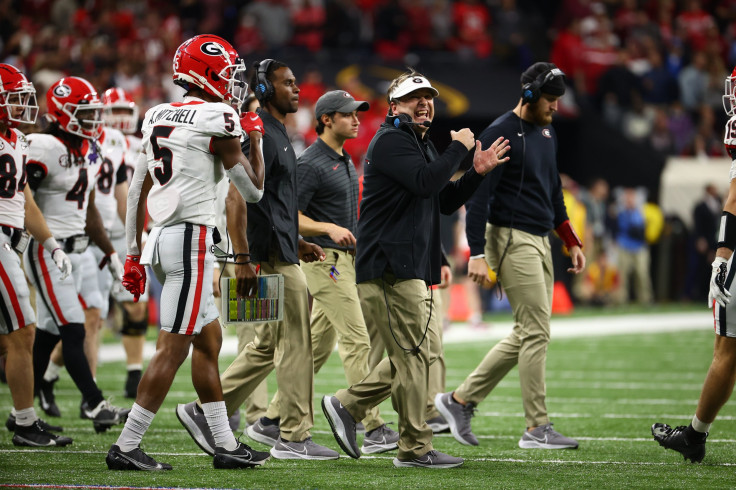The Talk Of This Year's College Bowl Season? The Transfer Portal

The college football bowl game season is well underway. With the Peach Bowl and the Fiesta Bowl scheduled on Saturday to decide who will play in the College Football National Championship on Jan. 9. While the games are newsworthy on their own, the underlying conversation around this season's plethora of bowl games is the NCAA transfer portal.
The transfer portal opened on Dec. 5, and players who chose to enter it forfeit their ability to play in this year's bowl games for their current team if they qualified. The transfer portal has long been a source of contention and conversation in college sports. However, the stakes are higher now that college athletes can be paid, and the transfer portal is even more controversial.
ESPN reports that last year over 3,000 NCAA football players from DI, DII, and DIII schools entered the transfer portal that was open year-round. The most in the portal's history. The NCAA changed the dates for entering the portal so students would not miss a year of eligibility. This year in the first four days of the portal opened on Dec. 5, ESPN reported over 1,325 students entered the portal. The current portal window is open until Jan. 15 and is expected to attract a record number of players looking to succeed at different universities.
In February, Sports Illustrated called the transfer portal "college football's free agency," as students are not exclusively tied to school and can transfer with little resistance. High student transfer rates put more pressure on schools to retain players and the future of some athletic programs in the air.
Name, image, and likeness (NIL) rules allow student-athletes to profit from their use in advertising and school representation. Students can be paid either through internal programs and recruitment from universities or external programs from booster clubs and collectives where donors provide money for recruitment or paying players. USA Today reports that the University of Oklahoma and Ohio State University have hired people who work full-time negotiating NIL contracts between students, schools, and external programs.
On Wednesday, the University of Arkansas and the University of Kansas played in the AutoZone Liberty Bowl. Leading up to the game, there was extensive conversation around the Arkansas roster as 19 players entered the transfer portal. Many players who entered the portal were established starters, leaving Arkansas to play players who had yet to see many games.
"I don't know if Kansas is in the same boat as we are. I don't feel like they are. I feel like they have not lost quite as many as we have," said Arkansas head coach Sam Pittman to Arkansas NBC affiliate KARK. " With that comes opportunity. I'm excited for the kids to go out there and get their opportunity to play. They're excited about it. You can feel the excitement from the team." Arkansas won the game in triple overtime at 55 to 53.
Saturday saw the University of Iowa Hawkeyes play the University of Kentucky Wildcats in the TransPerfect Music City Bowl. Iowa and Kentucky entered the game having finalized deals with new quarterbacks from the transfer portal earlier this month. Kentucky acquired former North Carolina State quarterback Devin Leary, and Michigan's Cade McNamara committed to playing for Iowa.
As was the previous rule, NCAA players who profit from NIL will not lose their scholarships or playing status, motivating players to make playing decisions based on financial opportunity over other factors like program culture and coaching staff. The Athletic reports programs are offering students up to six-figure deals, apartments, and new cars as recruitment deals, adding to pressure from schools to deliver on the field to justify the added player costs.
Going into the 2023-2024 season, expect significant changes in team rosters as the culture and climate of college sports changes to fit the NIL system and transfers become more common.
© Copyright IBTimes 2024. All rights reserved.





















